Denver is the capital and most populous city of Colorado, situated on the western edge of the High Plains, east of the Rocky Mountains' Front Range. With a population of 715,522 in 2020, it ranks as the 19th-most populous U.S. city. The Denver metropolitan area, home to over 3.05 million residents, is the 19th-largest in the nation and serves as the economic and cultural hub for the Front Range Urban Corridor.
1900: Denver Demographics
In 1900, the white population represented 96.8% of Denver's population.
1901: Bill Introduced for Home Rule
In 1901, a bill was introduced in the legislature proposing a state constitutional amendment to allow home rule for Denver and other municipalities.
1902: Denver City consolidates with Arapahoe County
In 1902, Denver City consolidated with Arapahoe County. Denver City served as the Arapahoe County Seat from 1861 until consolidation in 1902.
1902: City and County of Denver Created
In 1902, voters approved a statewide referendum, leading to the creation of the City and County of Denver, separating it from Arapahoe and Adams counties.
1904: Robert Speer as Denver Mayor (1904-12 and 1916-18)
From 1904 to 1912 and again from 1916 to 1918, Robert Speer served as Denver's mayor and expanded and beautified the city's parks.
1908: Denver first hosted the landmark Democratic National Convention.
Denver first hosted the landmark Democratic National Convention in 1908.
1908: Denver Hosts Democratic National Convention
In 1908, Denver hosted the Democratic National Convention, which promoted the city.
1908: Democratic National Convention
In 1908, Denver's Municipal Auditorium hosted the Democratic National Convention, now known as the Ellie Caulkins Opera House.
1910: Samsonite Founded
In 1910, Samsonite began in Denver as Shwayder Trunk Manufacturing Company.
1911: Qwest Corporation Founded
In 1911, Qwest Corporation, now part of Lumen Technologies, was founded in Denver as Mountain States Telephone & Telegraph Company.
1916: Robert Speer as Denver Mayor (1904-12 and 1916-18)
From 1916 to 1918 and previously from 1904 to 1912, Robert Speer served as Denver's mayor and expanded and beautified the city's parks.
1919: Gates Corporation Established
In 1919, The Gates Corporation, the world's largest producer of automotive belts and hoses, was established in S. Denver.
1923: Benjamin F. Stapleton first term as Mayor of Denver.
Benjamin F. Stapleton served as the mayor of Denver from 1923 to 1931 and then again from 1935 to 1947.
1923: Russell Stover Candies Debut
In 1923, Russell Stover Candies made its first chocolate candy in Denver.
1929: Construction of Denver Municipal Airport began in 1929
Amid heavy criticism, construction of Denver Municipal Airport, later renamed Stapleton International Airport, began in 1929.
1931: Benjamin F. Stapleton first term as Mayor of Denver.
Benjamin F. Stapleton served as the mayor of Denver from 1923 to 1931 and then again from 1935 to 1947.
1933: Democratic party is in control of the Colorado's 1st congressional district
Since 1933, the Democratic party has been in control of the Colorado's 1st congressional district for all but two terms.
1935: Benjamin F. Stapleton second term as Mayor of Denver.
Benjamin F. Stapleton served as the mayor of Denver from 1935 to 1947 and previously from 1923 to 1931.
October 31, 1937: Continental Airlines HQ Move to Denver
On October 31, 1937, Continental Airlines, now United Airlines, moved its headquarters to Stapleton Airport in Denver from El Paso, Texas.
1947: Benjamin F. Stapleton second term as Mayor of Denver.
Benjamin F. Stapleton served as the mayor of Denver from 1935 to 1947 and previously from 1923 to 1931.
1947: Amanda Knecht visits Brest
In 1947, Amanda Knecht, a teacher at East High School, visited World War II–ravaged Brest.
1948: Denver's sister city relationship with Brest begins
Denver's relationship with Brest, France, began in 1948, making it the second-oldest sister city in the United States.
1950: Frontier Airlines Operations Begin
In 1950, the original Frontier Airlines began operations at Denver's old Stapleton International Airport.
1953: Rocky Flats Plant Begins Production
In 1953, the Rocky Flats Plant began producing fissile plutonium "pits" for nuclear warheads about 15 miles from Denver.
1954: Scott's Liquid Gold Founded
Since 1954, Scott's Liquid Gold, Inc., has been making furniture polish in Denver.
1957: Fire at Rocky Flats Plant
In 1957, a major fire at the Rocky Flats Plant resulted in contamination of parts of Denver with plutonium-239.
1958: Leakage of nuclear waste at Rocky Flats Plant
Between 1958 and 1968, leakage from nuclear waste stored at the Rocky Flats Plant led to plutonium-239 contamination in some areas of Denver.
1958: Village Inn Founded
In 1958, Village Inn restaurants began as a single pancake house in Denver.
1962: Big O Tires Franchise Opens
In 1962, Big O Tires, LLC, of Centennial opened its first franchise in Denver.
1963: Democratic Party dominance in Denver politics since 1963
Since the 1963 municipal election, the mayor's office in Denver has been consistently occupied by a Democrat.
1966: Lowry Air Force Base flight operations ceased
In 1966, Lowry Air Force Base ceased flight operations.
1967: Denver Nuggets Join ABA
In 1967, the Denver Nuggets joined the American Basketball Association.
1968: Leakage of nuclear waste at Rocky Flats Plant
Between 1958 and 1968, leakage from nuclear waste stored at the Rocky Flats Plant led to plutonium-239 contamination in some areas of Denver.
March 1969: First National Chicano Youth Liberation Conference in March 1969
In March 1969, the Crusade for Justice hosted the First National Chicano Youth Liberation Conference in Denver.
1970: Neighborhood Boundaries Established
In 1970, Denver established a system of neighborhood boundaries and names that remains largely unchanged.
1970: Denver Selected to Host 1976 Winter Olympics
In 1970, Denver was selected to host the 1976 Winter Olympics.
1970: John A. Love last Republican to win Denver in a gubernatorial election in 1970
In 1970, John A. Love was the last Republican to win Denver in a gubernatorial election by a narrow majority.
1970: Broncos Sell Out Streak Begins
Since 1970, the Denver Broncos have sold out every home game (except for strike-replacement games).
1971: Shane Company First Jewelry Sale
In 1971, The Shane Company sold its first diamond jewelry in Denver.
1972: Denver hosted the Libertarian Party National Convention.
Denver hosted the Libertarian Party of the United States National Convention in 1972. Tonie Nathan was nominated for vice president, the first woman, as well as the first Jew, to receive an electoral vote in a United States presidential election.
1972: Johns Manville Corp. Relocates
In 1972, Johns Manville Corp., a manufacturer of insulation and roofing products, relocated its headquarters to Denver from New York.
1973: Re/Max Headquarters Move
In 1973, Re/Max made Denver its headquarters.
1974: Rehabilitation of the South Platte River begins in 1974
Starting in 1974, Denver and surrounding areas began rehabilitating the urban South Platte River and its tributaries for recreational use.
1975: Richard Lamm Elected Governor
In 1975, Richard Lamm, who led the movement against hosting the 1976 Winter Olympics, was elected as Colorado governor.
1976: Denver withdraws bid to host 1976 Winter Olympics
Denver was selected to host the 1976 Winter Olympics but withdrew, becoming the first city to back out after winning the bid. So, in 1976, Denver was not the host city for the Winter Olympics.
1976: Colorado Rockies NHL Team
From 1976 to 1982, Denver was home to the Colorado Rockies of the National Hockey League.
1980: CH2M Hill Relocates
In 1980, CH2M Hill, an engineering and construction firm, relocated from Oregon to the Denver Technological Center.
1980: Construction of SH 470 delayed until 1980
In 1980, construction of SH 470 was delayed until state and local legislation was passed after funding was redirected to complete conversion of downtown Denver's 16th Street to a pedestrian mall.
1981: Denver hosted the Libertarian Party National Convention.
Denver hosted the Libertarian Party of the United States National Convention in 1981.
1981: Dynasty Premieres
From 1981 to 1989, the prime time drama Dynasty was set in Denver (although the show was mostly filmed in Los Angeles).
1981: Snowfall Average Established
From 1981-2010, Denver's average snowfall was established as 53.5 inches (136 cm).
1981: Study Links Contamination to Health Issues
In 1981, a study linked plutonium contamination to an increase in birth defects and cancer incidence in central Denver and near Rocky Flats.
1981: Oil Price Peak
In 1981, the price of oil reached $34 a barrel, contributing to an energy boom in Denver.
July 1982: World Theatre Festival
In July 1982, Denver hosted the World Theatre Festival at the Denver Center for Performing Arts, which comprised 114 performances of 18 plays by theatre companies from 13 countries across 25 days.
1982: Colorado Rockies Move
From 1976 to 1982, Denver was home to the Colorado Rockies of the National Hockey League, before they moved to the New York metropolitan area to become the New Jersey Devils.
1984: William L. Armstrong last Republican senator to carry Denver during his 1984 landslide.
During his 1984 landslide, William L. Armstrong was the last Republican Senator to carry Denver.
1984: Denver supported a Democrat for president in every election since 1984
Since 1984, Denver has consistently supported a Democrat for president in every election. In 1984, Walter Mondale won Denver despite Ronald Reagan's national landslide.
1986: Oil Price Crash and Economic Downturn
In 1986, the price of oil dropped to $9 a barrel, causing an economic downturn in Denver.
1987: MediaNews Group Buys Denver Post
In 1987, MediaNews Group purchased the Denver Post; the company is based in Denver.
June 15, 1988: F3 Tornado Strikes Denver Suburbs
On June 15, 1988, an F3 tornado struck 4.4 miles (7.1 km) south of downtown Denver.
1988: Scientific and Cultural Facilities Tax Approved
In 1988, voters in the Denver Metropolitan Area approved the Scientific and Cultural Facilities Tax (SCFD).
1989: Dynasty Ends
From 1981 to 1989, the prime time drama Dynasty was set in Denver (although the show was mostly filmed in Los Angeles).
1989: Rocky Flats Plant Ceases Plutonium "pits" Production
In 1989, the Rocky Flats Plant ceased Plutonium "pits" Production.
July 11, 1990: Costliest Hailstorm in U.S. History
On July 11, 1990, Denver experienced one of the costliest hailstorms in U.S. history.
1993: Denver Hosts World Youth Day
From August 10–15, 1993, Denver hosted the Catholic Church's 6th World Youth Day, attended by an estimated 500,000 people.
1993: Colorado Rockies Expansion Franchise
In 1993, the Colorado Rockies were created as an expansion franchise.
1994: Frontier Airlines Reincarnated
In 1994, Frontier Airlines was reincarnated at DIA.
1994: Closure of Lowry Air Force Base
In 1994, Lowry Air Force Base officially closed.
1994: Victoria Buckley, Last Republican officeholder to carry Denver in 1994.
In 1994, Victoria Buckley, then Secretary of State, was the last statewide Republican officeholder to carry Denver by a 1.2% margin.
1994: SCFD Tax Renewed
In 1994, the Scientific and Cultural Facilities Tax (SCFD) was renewed by voters.
1995: Opening of Denver International Airport
Denver International Airport (DIA) opened in 1995, serving as the primary airport for the Front Range Urban Corridor.
1995: Coors Field Opens
In 1995, Coors Field opened.
1995: Colorado Avalanche Arrive
In 1995, the Colorado Avalanche joined Denver after relocating from Quebec City.
1995: Closure of Stapleton International Airport
Stapleton International Airport was closed in 1995 when it was replaced by Denver International Airport (DIA).
1996: Avalanche Win Stanley Cup
In 1996, the Colorado Avalanche won their first Stanley Cup while in Denver.
1997: Denver hosted the G7 summit between June 20 and 22 in 1997
Denver hosted the G7 summit between June 20 and 22 in 1997.
1998: Emergency Vets Series Begins
From 1998 to 2002 the city's Alameda East Veterinary Hospital was home to the Animal Planet series Emergency Vets, which spun off three documentary specials and the current Animal Planet series E-Vet Interns.
1998: Broncos Win Back-to-Back Super Bowls
In 1998, the Denver Broncos won back-to-back Super Bowl titles.
1999: Avalanche and Nuggets at Ball Arena
Since 1999, both the Colorado Avalanche and the Denver Nuggets have played at Ball Arena (formerly known as Pepsi Center).
2000: Denver hosted the 2000 National Convention of the Green Party
Denver hosted the 2000 National Convention of the Green Party.
2001: Samsonite Closes Denver Factory
In 2001, Samsonite closed its NE Denver factory.
2001: Denver Post and Rocky Mountain News merged operations in 2001
In 2001, The Denver Post and the Rocky Mountain News merged operations under a joint operating agreement that formed the Denver Newspaper Agency.
2001: South Platte River Greenway wins Silver Medal Rudy Bruner Award in 2001
In 2001, the Greenway project along the South Platte River won the Silver Medal Rudy Bruner Award for Urban Excellence, recognizing it as one of the best urban reclamation projects in the U.S.
2002: Emergency Vets Series Ends
From 1998 to 2002 the city's Alameda East Veterinary Hospital was home to the Animal Planet series Emergency Vets, which spun off three documentary specials and the current Animal Planet series E-Vet Interns.
2002: Bill Owens in 2002 last Republican Governor to receive at least 40% of Denver's vote
In 2002, Bill Owens was the last Republican governor to receive at least 40% of Denver's vote.
2004: SCFD Tax Renewed Again
In 2004, the Scientific and Cultural Facilities Tax (SCFD) was renewed by voters, allowing it to operate until 2018.
2004: City Acquires Clyfford Still Estate
In 2004, the city acquired the estate of abstract expressionist painter Clyfford Still and built a museum to exhibit his works near the Denver Art Museum.
2004: FasTracks project approved
In 2004, voters approved the FasTracks commuter rail, light rail, and bus expansion project to serve neighboring suburbs and communities.
2005: Denver legalizes marijuana possession in 2005
In 2005, Denver became the first major U.S. city to vote to make the private possession of less than an ounce of marijuana legal for adults 21 and older.
2005: Molson Coors Establishes U.S. HQ in Denver
In 2005, Molson Coors Brewing Company established its U.S. headquarters in Denver.
2005: Colorado Convention Center Expansion Completed
In 2005, a $310.7 million expansion of the Colorado Convention Center was completed, doubling its size.
November 17, 2006: Completion of the T-REX project
On November 17, 2006, the Transportation Expansion Project (T-REX) was completed, which expanded highway lanes, improved highway access and drainage, and included a light rail line from downtown to Lincoln Avenue.
2006: Denver park system in 2006
As of 2006, Denver boasted over 200 parks and 29 recreation centers, offering various recreational opportunities for residents.
2006: Denver Outlaws Established
In 2006, Denver established a Major League Lacrosse team, the Denver Outlaws and Colorado Mammoth won championships.
2006: Denver Recognized as Best City for Singles
In 2006, Denver was recognized for the third year in a row as the best city for singles.
2006: Samsonite Headquarters Move
In 2006, Samsonite moved its headquarters to Massachusetts after a change of ownership.
2007: Dick's Sporting Goods Park Opens
Dick's Sporting Goods Park, home of the Colorado Rapids, opened for the 2007 MLS season in the Denver suburb of Commerce City.
2007: Rockies Reach World Series
In 2007, the Colorado Rockies advanced to the playoffs, won the NL Championship Series, and brought the World Series to Denver for the first time but were swept in four games by the Boston Red Sox.
2007: Mayor Required to Appoint 11-member Review Panel to Monitor Marijuana Compliance
In the fourth quarter of 2007, Denver passed an initiative requiring the mayor to appoint an 11-member review panel to monitor the city's compliance with the 2005 ordinance that legalized marijuana possession.
2008: Denver hosted the 2008 Democratic National Convention
Denver hosted the 2008 Democratic National Convention, marking the centennial of the city's first hosting of the landmark 1908 convention.
February 2009: Rocky Mountain News closed in February 2009
In February 2009, the E. W. Scripps Company closed the Rocky Mountain News.
March 29, 2009: Final run of the Ski Train
On March 29, 2009, the Ski Train, which took passengers between Denver and the Winter Park Ski Resort, made its final run to Winter Park.
July 20, 2009: Costliest Hailstorm in U.S. History
On July 20, 2009, Denver experienced one of the costliest hailstorms in U.S. history.
2009: Denver ranked as the 16th-largest television market for 2009-2010
According to the 2009–2010 rankings from Nielsen Media Research, Denver was the 16th-largest market in the country for television.
2009: Denver-Boulder radio market ranking in Fall 2009
According to the Fall 2009 Arbitron ranking, the Denver–Boulder radio market was the No. 20 market in the United States.
April 2010: Denver launched B-Cycle in April 2010
In late April 2010, Denver launched B-Cycle, a citywide bicycle sharing program, which was the largest in the United States at the time of its launch.
August 2010: Plutonium Contamination Still Present
As of August 2010, plutonium contamination was still present outside the former Rocky Flats Plant site.
2010: Denver ranked as the 16th-largest television market for 2009-2010
According to the 2009–2010 rankings from Nielsen Media Research, Denver was the 16th-largest market in the country for television.
2010: Languages Spoken in Denver
As of 2010, 72.28% of Denver residents aged five and older spoke only English at home, while 21.42% spoke Spanish.
2010: Snowfall Average Established
From 1981-2010, Denver's average snowfall was established as 53.5 inches (136 cm).
2010: Real Estate Investment Increase
From 2010 onward, the Downtown region has seen increased real estate investment with the construction of several new skyscrapers and major development around Denver Union Station.
2010: Launch of B-Cycle
In 2010, B-Cycle, Denver's citywide bicycle sharing program, was launched and became the largest in the United States at the time, boasting 400 bicycles.
2010: Denver Updates Zoning Code
In 2010, Denver adopted a comprehensive update of its zoning code to guide development as envisioned in adopted plans.
2011: Denver ranks 6th in percentage of workers who commute by bicycle in 2011
According to data from the 2011 American Community Survey, Denver ranks 6th among US cities with populations over 400,000 in terms of the percentage of workers who commute by bicycle at 2.2% of commuters.
2011: Denver-Boulder radio market ranking in 2011
According to the Spring 2011 Arbitron ranking, the Denver–Boulder radio market was the No. 19 market in the United States.
2011: Denver's homeless rate in 2011
In 2011, Denver had a homeless rate of 19 per 10,000 residents, considerably lower than many other major cities.
April 2012: History Colorado Center Opens
In April 2012, the state history museum, History Colorado Center, opened. It features hands-on and interactive exhibits, artifacts and programs about Colorado history.
October 3, 2012: University of Denver hosted the first 2012 presidential debate
On October 3, 2012, the University of Denver hosted the first of the three 2012 presidential debates.
April 2013: W Line opening
In April 2013, the W Line, or West line, opened serving Golden/Federal Center as part of the FasTracks expansion.
2013: Continental and United Airlines Merge
In 2013, Continental merged with United Airlines after Continental moved to Houston from Denver.
2013: History Colorado Center Named Top Museum
In 2013, History Colorado Center was named by True West Magazine as one of the top-ten "must see" history museums in the country.
2013: Denver Metropolitan Area Population
In 2013, the Denver–Aurora–Lakewood, CO Metropolitan Statistical Area had an estimated population of 2,697,476 and the larger Denver–Aurora–Boulder Combined Statistical Area had an estimated population of 3,277,309.
2014: Life Expectancy in Denver
According to a report in the Journal of the American Medical Association, residents of Denver had a 2014 life expectancy of 80.02 years.
2014: Denver Ranked 18th-Coldest Major U.S. City
As of 2014, The Weather Channel ranked Denver the 18th-coldest major U.S. city.
2014: B-Cycle ridership peaked in 2014, then steadily declined.
B-Cycle ridership peaked in 2014, then steadily declined. The program announced it would cease operations at the end of January 2020.
2014: Denver Outlaws Win Championship
In 2014, the Denver Outlaws won their first championship eight years after establishment.
2015: Car ownership in Denver
In 2015, 9.6 percent of Denver households lacked a car.
2015: Denver Ranks No. 1 on Forbes' List
In 2015, Denver ranked No. 1 on Forbes' list of the Best Places for Business and Careers.
2015: Commuter Railway System Commences Operations
In 2015, a new commuter railway system commenced operations in the Denver metropolitan area with a network operation of 25 kV 60 Hz.
April 2016: A Line opening
In April 2016, the commuter rail A Line from Denver Union Station to Denver International Airport opened, exceeding early ridership expectations.
November 2016: Denver Unemployment Rate
In November 2016, Denver's unemployment rate was 2.6%, one of the lowest in the nation.
December 2016: Denver Unemployment Rate
As of December 2016, the unemployment rate for the Denver–Aurora–Broomfield MSA is 2.6%.
2016: Car ownership statistics
In 2016, 9.4 percent of Denver households lacked a car, compared to the national average of 8.7 percent. Denver averaged 1.62 cars per household, while the national average was 1.8.
2016: SCFD Sales Tax Extension Approved
In 2016, Ballot issue 4B won approval to extend the SCFD sales tax until 2030.
2016: Denver Outlaws Win Championship
In 2016, the Denver Outlaws won a championship.
2016: Ski Train revival
In 2016, the Ski Train service was revived on a trial basis with local fanfare.
May 8, 2017: Costliest Hailstorm in U.S. History
On May 8, 2017, Denver experienced one of the costliest hailstorms in U.S. history.
2017: DIA ratings by Skytrax
In 2017, Denver International Airport was rated by Skytrax as the 28th-best airport in the world and second-best in the United States.
2017: Denver's walkability ranking in 2017
In 2017, Walk Score ranked Denver twenty-sixth among 108 U.S. cities with a population of 200,000 or greater.
2017: Ski Train returns as Winter Park Express
In 2017, the Ski Train returned to service under Amtrak as the "Winter Park Express".
June 28, 2018: Extreme High Temperature
On June 28, 2018, Denver reached an extreme high temperature of 105°F (41°C).
2018: Chipotle HQ Move
In 2018, Chipotle Mexican Grill moved its headquarters to Newport Beach, California.
2018: Electric scooter services began in Denver in 2018
In 2018, electric scooter services like LimeBike and Bird began placing scooters in Denver. Uber's Jump e-bikes arrived in late August, followed by Lyft's electric scooter launch in early September.
2018: Denver Bandits Established
In 2018, the Denver Bandits were established as the first professional football team for women in Colorado.
2018: Denver Outlaws Win Championship
In 2018, the Denver Outlaws won a championship.
2018: SCFD Operation Until 2018
The Scientific and Cultural Facilities Tax (SCFD) was allowed to operate until 2018.
April 26, 2019: G Line opening
On April 26, 2019, the G Line to Arvada opened.
May 2019: Denver Decriminalizes Psilocybin Mushrooms in May 2019
In May 2019, Denver became the first U.S. city to decriminalize psilocybin mushrooms, prohibiting the city from using resources to prosecute adults over 21 for personal use.
July 2019: Denver will not assist U.S. Immigration and Customs Enforcement agents with immigration raids.
In July 2019, Mayor Hancock announced that Denver would not assist U.S. Immigration and Customs Enforcement agents with immigration raids.
2019: Temperature Analysis at Denver International Airport
A 2019 analysis showed the average temperature at Denver International Airport, 50.2 °F (10 °C), was significantly cooler than downtown, 53.0 °F (12 °C).
2019: Molson Coors Announces Departure
In 2019, Molson Coors Brewing Company announced its departure from Denver.
2019: Denver Bandits Part of WNFC
In 2019, the Denver Bandits were a part of the initial season for the Women's National Football Conference (WNFC).
2019: DIA passenger count
In the pre-pandemic year of 2019, Denver International Airport had the 5th highest number of passengers in the U.S., with 61 million.
2019: "Denver Moves: Pedestrians" plan in 2019
The 2019 "Denver Moves: Pedestrians" plan outlines a need for approximate $1.3 billion in sidewalk funding, plus $400 million for trails.
January 2020: B-Cycle ceased operations at the end of January 2020
B-Cycle ceased operations at the end of January 2020. The city announced plans to seek one or more new contractors to run a bike-share program starting mid-2020.
September 21, 2020: N Line opening
On September 21, 2020, the N Line to Commerce City and Thornton opened.
2020: Racial Composition of Denver
According to the 2020 United States census, the racial composition of Denver was recorded.
2020: Denver Population and Household Statistics
According to the 2020 census, the City and County of Denver contained 715,522 people and 301,501 households.
2020: Denver Population
As of the 2020 census, the population of the City and County of Denver was 715,522, making it the 19th most populous U.S. city.
2020: City and County of Denver Area
At the 2020 United States census, the City and County of Denver had an area of 99,025 acres (400.739 km2), including 1,057 acres (4.276 km2) of water.
2020: Stapleton neighborhood renamed Central Park in 2020
During the George Floyd protests in 2020, the Stapleton neighborhood was renamed Central Park due to Stapleton's racism and membership in the Ku Klux Klan.
2020: Stapleton Neighborhood Renamed
In 2020, the Stapleton neighborhood's community association voted to change the name to Central Park.
2021: DIA passenger count
In 2021, Denver International Airport was the 3rd busiest airport in the world with 58.8 million passengers.
2021: Month of December Without Any Snowfall
In the 2021 winter season, Denver began the month of December without any snowfall for the first time in history.
December 22, 2022: Extreme Low Temperature
On December 22, 2022, Denver experienced a low temperature of -24°F (-31°C), with a wind chill of -40°F (-40°C).
2022: Denver explored potential bid for the 2022 Winter Olympics
In 2022, Denver explored a potential bid for the Winter Olympics, but no bid was submitted.
2022: Denver voters passed Initiative 307 in 2022
In 2022, Denver voters passed Initiative 307, dubbed "Denver Deserves Sidewalks", to complete sidewalk construction and repair.
2022: Psilocybin mushrooms legalized in the state of Colorado
In 2022, Psilocybin mushrooms were legalized in the state of Colorado.
2022: Colorado Mammoth Win Championship
In 2022, the Colorado Mammoth of the National Lacrosse League won championships.
2022: Denver's Park System Ranking in 2022
In 2022, the Park Score by the Trust for Public Land ranked Denver's park system as the 18th best among the 50 most populous U.S. cities, noting that 89% of Denverites live within a 10-minute walk of a park.
2023: Front Range Passenger Rail proposal
As of 2023, Front Range Passenger Rail is a current proposal to link the cities from Pueblo in the south, north to Fort Collins and possibly to Cheyenne, Wyoming.
2023: Denver's top employers as of the city's 2023 Comprehensive Annual Financial Report
As of the city's 2023 Comprehensive Annual Financial Report, Denver's top employers are:
2023: Denver MSA Gross Metropolitan Product
The Denver MSA had a gross metropolitan product of $311.9 billion in 2023, making it the 18th largest metro economy in the United States.
2024: Ibotta's IPO
In 2024, Denver based Ibotta's initial public offering (IPO) was the largest tech IPO in Colorado's history.
2024: Ski Train service expansion
In 2024, greatly expanded service for the Winter Park Express was planned for the 2024-2025 ski season.
2024: Colorado rated as the sixth most bicycle-friendly state in the nation for 2024
In 2024, the League of American Bicyclists rated Colorado as the sixth most bicycle-friendly state in the nation.
2025: Denver Awarded NWSL Team
In 2025, Denver was awarded a National Women's Soccer League team called Denver Summit FC.
2025: Ski Train service expansion
In 2025, greatly expanded service for the Winter Park Express was planned for the 2024-2025 ski season.
2030: SCFD Sales Tax Extended Until
The SCFD sales tax was extended until 2030.
2040: Projected completion of B Line extension
The commuter rail connection to Boulder and Longmont (B Line) is planned to be finished by RTD, but no construction funds have yet been identified prior to 2040.
Mentioned in this timeline

Basketball is a team sport played on a rectangular court...
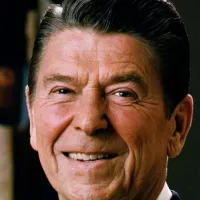
Ronald Reagan the th U S President - was a...
California is a U S state on the Pacific Coast...
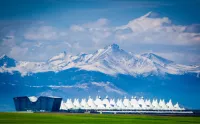
Denver International Airport DIA is a major international airport serving...
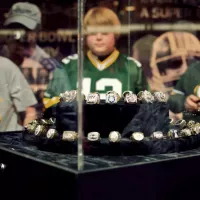
The Super Bowl is the annual championship game of the...
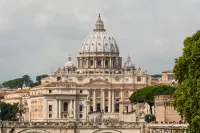
The Catholic Church the largest Christian church globally with over...
Trending
10 minutes ago Ski Mountaineering to Debut at Milan-Cortina Winter Olympics in 2026.

1 hour ago Selena Gomez's Spiced-Plum Manicure and TikTok Clone Theory Spark Buzz

1 hour ago Kit Harington and Sophie Turner Gag After On-Screen Kiss in New Movie

1 hour ago Trump administration updates, Iran nuclear efforts, and White House controversies unfold.
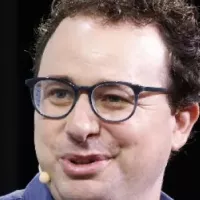
1 hour ago Dario Amodei Highlights India's Central Role in Shaping AI's Future at AI Summit.

2 hours ago Yoon Suk Yeol, South Korean ex-president, receives life sentence for insurrection and martial law.
Popular

Jesse Jackson is an American civil rights activist politician and...
Randall Adam Fine is an American politician a Republican who...

Pam Bondi is an American attorney lobbyist and politician currently...

Barack Obama the th U S President - was the...

Martin Luther King Jr was a pivotal leader in the...

Ken Paxton is an American politician and lawyer serving as...